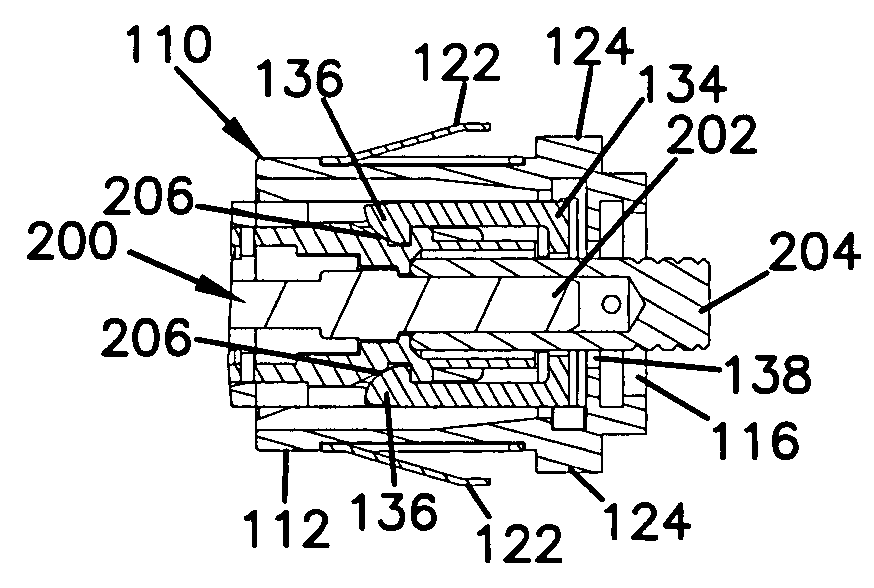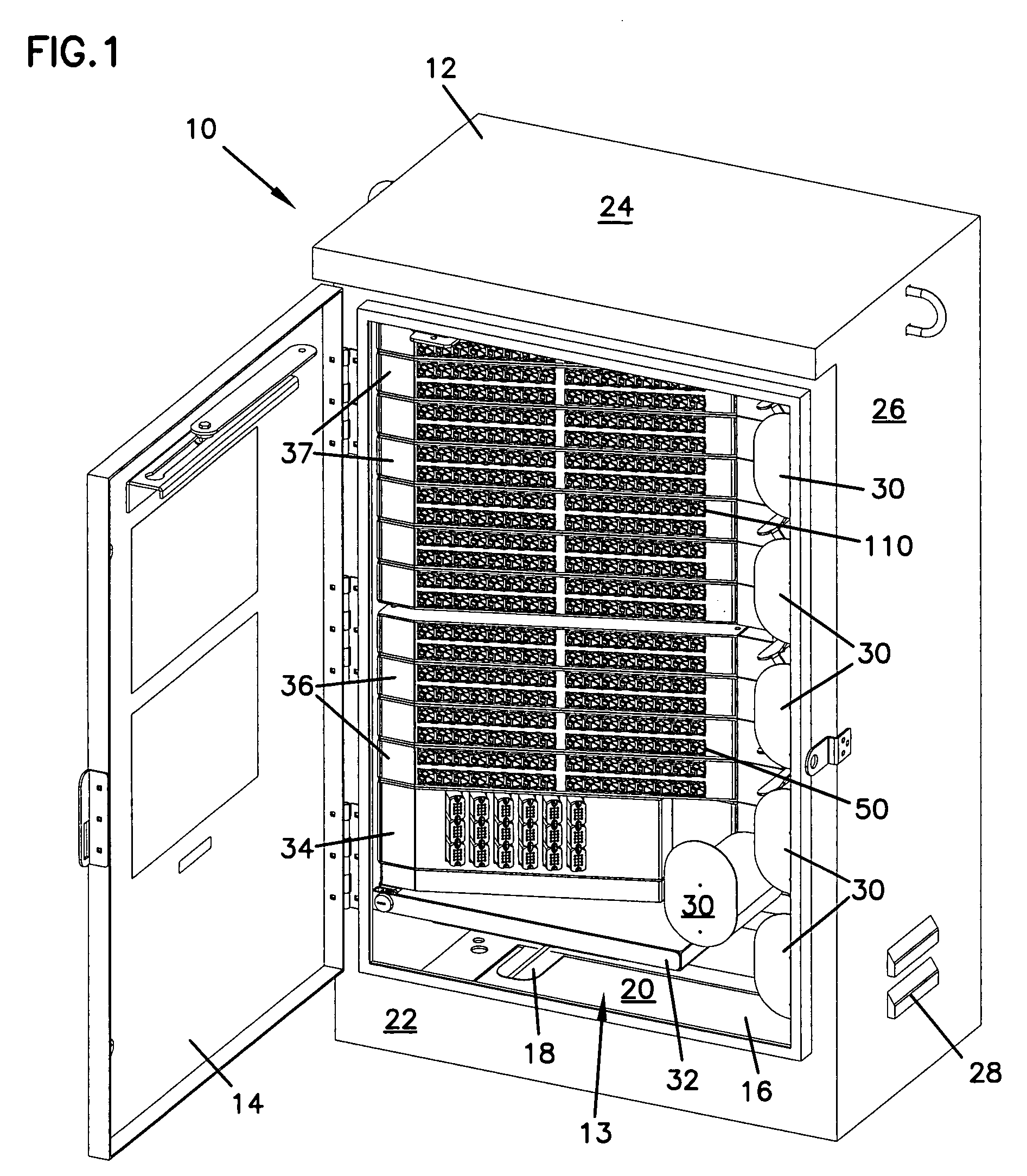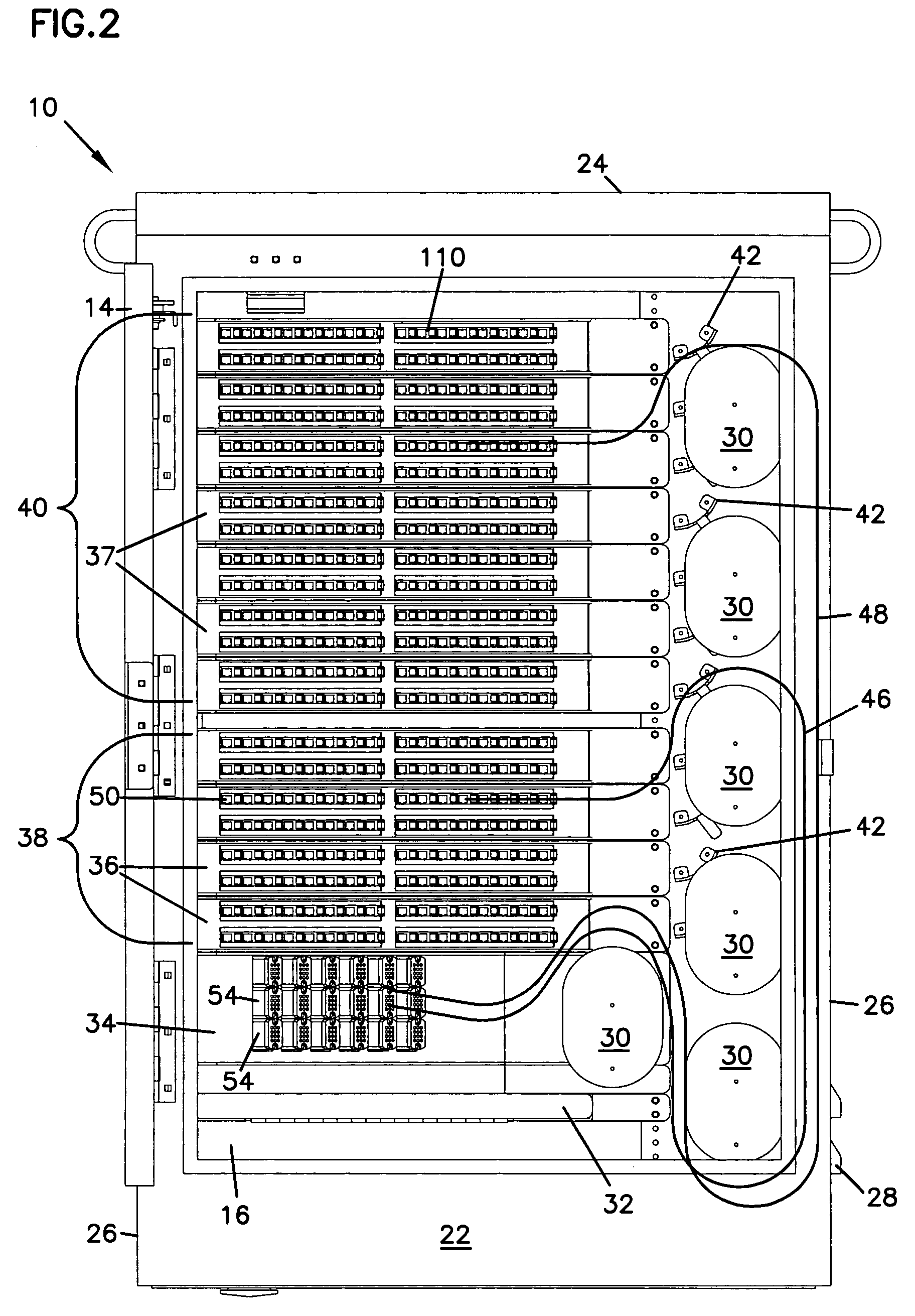Telecommunications connection cabinet
a technology for connecting cabinets and telecommunications, which is applied in the field of cabinets, can solve the problems of affecting the transmission of light to and from optical fibers, connectors that are not capable of being received in known optical fiber adapters, and adapters that are not as effective in protecting the polished end faces as dust caps
- Summary
- Abstract
- Description
- Claims
- Application Information
AI Technical Summary
Benefits of technology
Problems solved by technology
Method used
Image
Examples
Embodiment Construction
[0063]Reference will now be made in detail to exemplary aspects of the present invention which are illustrated in the accompanying drawings. Wherever possible, the same reference numbers will be used throughout the drawings to refer to the same or similar parts.
[0064]Telecommunications connection cabinets, such as cabinet 10 shown in FIG. 1, are used to permit organization and interconnection of different telecommunications infrastructure cables. A multi-strand telecommunications service cable such as an IFC or ribbon cable with multiple optical fibers, may be used to electronically or optically link widely spaced facilities. The service cable may be directed into cabinet 10 where it may be connected to a fanout module 34 and separated into individual fibers. Each of these strands may be connected to a patch cord 46 which may be terminated with a fiber optic connector. The fiber optic connector of patch cord 46 (such as connector 200 described below) may then be inserted into the fr...
PUM
| Property | Measurement | Unit |
|---|---|---|
| size | aaaaa | aaaaa |
| size | aaaaa | aaaaa |
| storage area | aaaaa | aaaaa |
Abstract
Description
Claims
Application Information
 Login to View More
Login to View More - R&D
- Intellectual Property
- Life Sciences
- Materials
- Tech Scout
- Unparalleled Data Quality
- Higher Quality Content
- 60% Fewer Hallucinations
Browse by: Latest US Patents, China's latest patents, Technical Efficacy Thesaurus, Application Domain, Technology Topic, Popular Technical Reports.
© 2025 PatSnap. All rights reserved.Legal|Privacy policy|Modern Slavery Act Transparency Statement|Sitemap|About US| Contact US: help@patsnap.com



